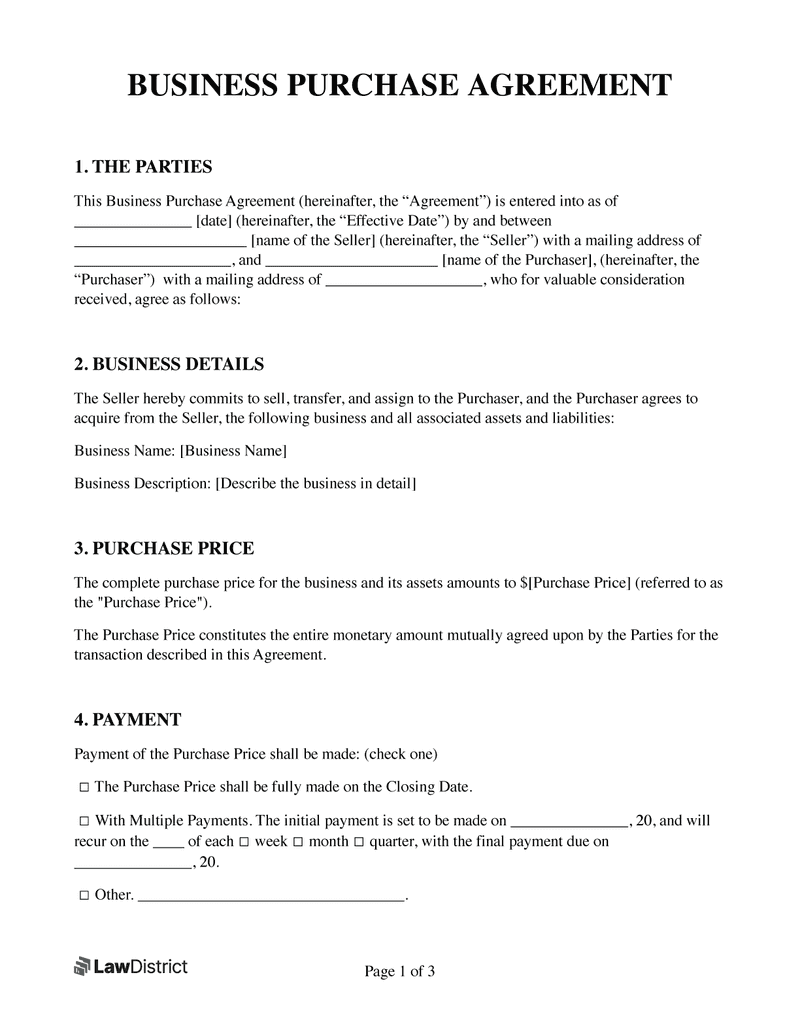A Business Purchase Agreement (BPA) is a legal document that outlines the terms and conditions of a business sale, detailing the transaction from start to finish.
The primary purpose of a BPA is to provide a clear and mutual understanding of the expectations and responsibilities of both parties involved in the transaction.
It serves as a roadmap that guides the buyer and seller through the process, ensuring that all agreed-upon terms are met and that the transaction proceeds smoothly. This agreement also acts as a safeguard for both parties, protecting their interests and providing a reference point in case any disputes arise.
When To Use a Business Purchase Agreement
A BPA becomes essential when one party intends to purchase a business from another. This pivotal document is employed during the acquisition or sale of a business, ensuring that the terms, conditions, and specifics of the transaction are clearly laid out and legally binding.
Whether you're an entrepreneur looking to acquire a new venture or a business owner aiming to sell your established enterprise, a BPA provides the necessary framework to detail the sale's intricacies, from assets and liabilities to intellectual property and staff contracts.
Furthermore, a Purchase Agreement for Business is not limited to large corporations or established businesses. Even if you're considering purchasing a small local store, a startup, or a franchise, having a BPA in place is crucial.
